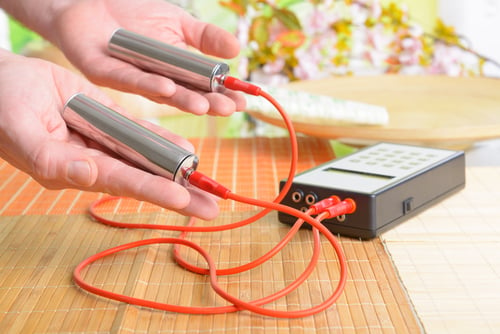Biofeedback is Like a Videogame for Kids, Effective in Treating Anxiety and Depression

Games work for kids. Turn anything into a game and you have their undivided attention. Making otherwise tedious activities entertaining tasks makes adolescents more willing to engage. Studies have found that fun entertainment as a form of learning is more effective in some areas. One area where this was recently tested was in the use of biofeedback for the treatment of depression and anxiety. Both anxiety and depression are commonly co-occurring mental health disorders with addiction and alcoholism. Depression and anxiety form in adolescence. Without anxiety treatment programs and intervention, they can worsen over time and lead to substance abuse, if substance abuse does not also develop in adolescence. Biofeedback is a treatment method which uses a computer and sensors on the brain to produce images of brain waves. Through real time interactions, kids can see their brain waves change in response to stimuli.
NCBI
reports on a new study which created game-based biofeedback therapy for treating adolescents of ages 9-17. Over the course of eight sessions, the adolescents in the study experienced psychoeducation, identification of triggers and signs of anxiety, and in vivo practice, the website explains. Conclusively, the study found significant differences between the groups of adolescents who used the game-based biofeedback and those who did not. Findings suggest that biofeedback-assisted relaxation training can be useful in decreasing anxiety and depressive symptoms in anxious youths, the article cites.
Why Games Work
School-age children in the USA spend an average of seven hours per week playing video games, and eighth and ninth grade students average about nine hours per week, the research describes. Given their prevalence in youth culture, video-game-based programs may be enjoyable and motivating media for treatments intended for children and adolescence. Using game based treatments has been proven effective for treating childhood PTSD, post-traumatic stress disorder. Though there is not a vast amount of empirical data, the most trusted and valid data used in peer reviewed journals, there is a growing amount of support for investigating the use of game based technology. Additionally, the study explains, depression and anxiety in adolescence is becoming so common that each tend to be comorbid with the other. Since the technology proved to be effective for reducing both anxiety and depression, researchers believe game-based biofeedback could become a one-off treatment.In addition to many advanced treatment methods utilized at Stonewater Adolescent Recovery Center, game-based biofeedback is one of the methods we use for helping our adolescent clients understand their brains, the nature of addiction, and the efficacy of recovery methods. Providing premiere residential treatment for adolescent addiction, our programs welcome each client as a member of our family as we guide them in building a foundation and cleansing their life mind, body and spirit. For more information, call us today at 662-598-4214.

.jpg)

